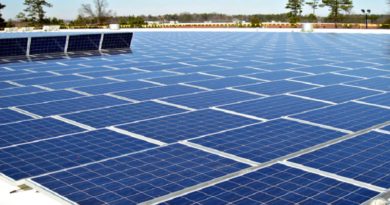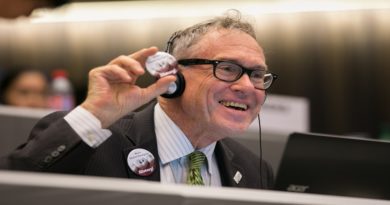ADB to boost South Asia, Pacific climate action with $80bn
The Asian Development Bank (ADB) has pledged to provide $80 billion in climate financing to South Asia and the Pacific over the next decade under its new Strategy 2030.
Due to the disastrous impacts of climate change, countries in Asia and the Pacific are at the highest risk of plummeting into deeper poverty — and disaster — if mitigation and adaptation efforts are not quickly and strongly implemented.
“Asia and the Pacific has made great progress over the last half century in poverty reduction and economic growth, but there are unfinished development agendas,” said ADB President Mr. Takehiko Nakao. “Under Strategy 2030, we will combine finance, knowledge, and partnerships to sustain our efforts to eradicate extreme poverty and expand our vision towards a prosperous, inclusive, resilient, and sustainable region.”
The ADB intends to ensure that 75% of the number of its committed operations will be supporting climate change mitigation and adaptation by 2030, thus aligning its aspirations with major global commitments such as the Paris Climate Change Agreement, Sustainable Development Goals, the Financing for Development agenda, and the Sendai Framework for Disaster Risk Reduction.
The seven operational priorities set out in the bank’s new strategy include, tackling climate change; building climate and disaster resilience and enhancing environmental sustainability; making cities more livable; promoting rural development and food security; addressing remaining poverty and reducing inequalities; accelerating progress in gender equality; strengthening governance and institutional capacity; and fostering regional cooperation and integration.
Under the strategy, ADB will continue to prioritize support for the region’s poorest and most vulnerable countries. It will also apply differentiated approaches to meet the diverse needs of various groups of countries: fragile and conflict-affected situations, small island developing states, low-income and lower middle-income countries, and upper middle-income countries. Across these country groups, ADB will also prioritize support for lagging areas and pockets of poverty and fragility.
In preparing Strategy 2030, extensive consultations were carried out with a wide and representative group of stakeholders across ADB’s membership, leading development experts, and civil society organizations.
ADB is committed to achieving a prosperous, inclusive, resilient, and sustainable Asia and the Pacific, while sustaining its efforts to eradicate extreme poverty. Established in 1966, it is owned by 67 members—48 from the region. In 2017, ADB operations totaled $32.2 billion, including $11.9 billion in cofinancing.




